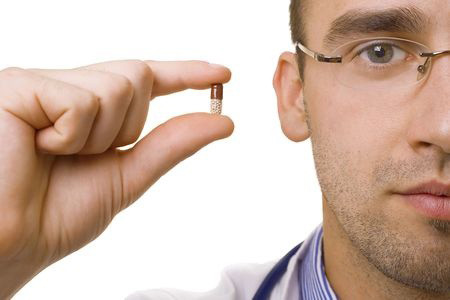Posted by -Beyond Health on Nov 3rd 2025
Uncovering The Diabetes Drug Scandal: What You Need to Know
Diabetes: A Lifestyle Disease Treated as a Drug Deficiency
Most experts agree on a basic truth: diet and lifestyle are the primary drivers of type 2 diabetes—and therefore the keys to preventing and reversing it.
Yet despite this consensus, diabetes has become one of the most aggressively medicated conditions of our time. With over 10% of the U.S. population diagnosed with diabetes and an additional one-third considered pre-diabetic, the market is simply too large for pharmaceutical companies to ignore.
Instead of addressing root causes, the public is repeatedly told that blood sugar dysregulation is a problem best managed with pills.
It isn’t.
And in many cases, those pills create new—and sometimes more dangerous—problems.
A Case in Point: Invokana
Introduced in 2013, Invokana (generic name: canagliflozin) was the first drug in a new class of diabetes medications known as SGLT2 inhibitors (sodium-glucose co-transporter-2 inhibitors) approved by the U.S. Food and Drug Administration.
Despite heavy promotion, the consumer advocacy group Public Citizen placed Invokana on its “Do Not Use” list, citing minimal benefit and serious safety concerns.
Nevertheless, Forbes projected massive sales—illustrating just how profitable chronic disease management has become.
How Invokana Works—and Why That’s a Problem
Under normal conditions, the kidneys filter glucose out of the blood and then reabsorb it, returning this valuable fuel to circulation.
Invokana works by blocking this reabsorption, forcing glucose to be dumped into the urine.
Yes, blood sugar numbers go down—but at a cost.
Documented and Mechanistically Predictable Side Effects Include:
-
Genital yeast and fungal infections (sugar-rich urine feeds microbes)
-
Excessive urination, leading to dehydration and electrolyte imbalance
-
Dizziness and low blood pressure
-
Kidney impairment
-
Increased cardiovascular risk
Since the primary goal of diabetes treatment is to prevent complications, and cardiovascular disease is the leading cause of death in diabetics, a drug that may increase heart attack or stroke risk directly contradicts that goal.
There have also been concerns—still under investigation—about potential effects on the liver, pancreas, and cancer risk.
A Troubling Pattern, Not an Isolated Case
Invokana is not an anomaly.
Other diabetes drugs have followed a similar trajectory:
-
Avandia – linked to increased risk of heart attack and stroke
-
Actos – associated with increased bladder cancer risk
-
Rezulin – withdrawn after causing liver failure
Time and again, drugs are approved, widely prescribed, and only later revealed to carry unacceptable risks.
The Uncomfortable Truth: Diabetes Is Often Reversible
A landmark study published in Diabetologia demonstrated that:
-
Fasting blood sugar normalized within one week on a low-calorie diet
-
Insulin production and post-meal blood sugar normalized within eight weeks
In other words, type 2 diabetes was effectively reversed—without drugs.
At Beyond Health, we’ve seen similar outcomes using a less extreme but more holistic approach:
-
Maximizing nutrient sufficiency
-
Minimizing toxic exposure
-
Improving insulin sensitivity through movement and metabolic support
A Smarter, Safer Path Forward
We believe there is almost always a natural alternative to prescription drugs—especially when the condition is driven by lifestyle.
When it comes to blood sugar balance, traditional systems of medicine have used herbs and nutrients safely and effectively for thousands of years.
Glucose Regulation Guard combines:
-
Five synergistic, pharmaceutical-grade, non-GMO herbs
-
Key nutrients that support insulin sensitivity and glucose metabolism
Used alongside a whole-food, low-sugar diet and an active lifestyle, it provides foundational metabolic support without the risks inherent in drug therapy.
Bottom Line
Blood sugar dysregulation is not a pill deficiency.
Don’t rely on toxic medications to manage a condition that is largely driven by diet, lifestyle, and nutrient status.
Adopt the principles outlined in Raymond Francis’ books, address root causes, and support healthy glucose metabolism naturally.
References
Spence D. Bad medicine: the way we manage diabetes. British Medical Journal, April 2013;346:f2695.
Public Citizen. The new diabetes drug canagliflozin (Invokana). Worst Pills, Best Pills News, February 2014;20(2).
Haiken M. New diabetes drug Invokana has major treatment—and market—potential. Forbes, April 1, 2013.
Lim EL. Reversal of type 2 diabetes: normalization of beta-cell function in association with decreased pancreas and liver triacylglycerol. Diabetologia, October 2012;54(10):2506–2514.
 Fuel your life with the purest vitamins
Fuel your life with the purest vitamins
